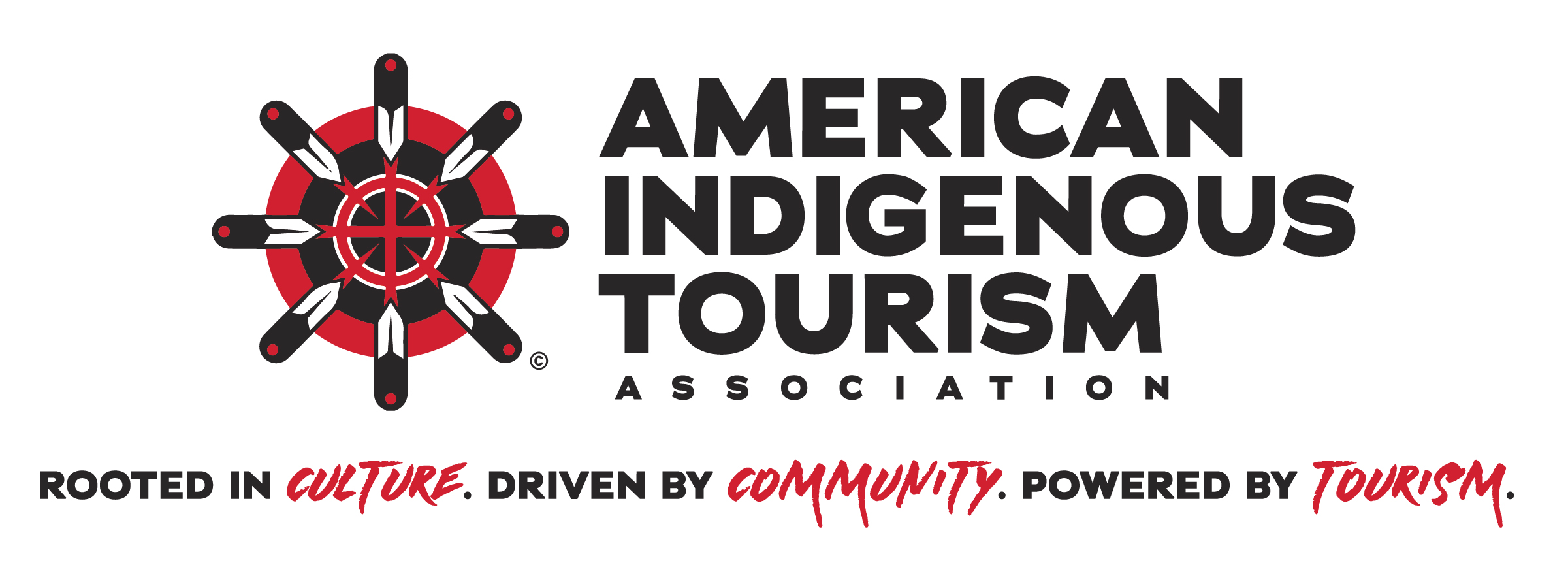
- Details
- By Native News Online Staff
In a landmark move reflecting a more inclusive and expansive mission, the American Indian Alaska Native Tourism Association (AIANTA) on Monday announced its official transition to the American Indigenous Tourism Association. The new name, effective immediately, aligns with Indigenous Peoples’ Day, symbolizing the organization’s deepened commitment to spotlighting the rich, diverse cultures of Indigenous peoples across the United States and its territories.
The mission of the American Indigenous Tourism Association is to define, introduce, grow, and sustain American Indigenous Tourism in a way that honors traditions and values. This strategic change positions the organization to better serve and advocate for all Indigenous tourism operators and communities, fostering both economic development and cultural preservation.
“Our name change, celebrated on Indigenous Peoples’ Day, to the American Indigenous Tourism Association is more than just a new title — it’s a statement of our commitment to inclusivity and unity,” said Sherry L. Rupert (Paiute/Washoe), Chief Executive Officer of the American Indigenous Tourism Association. “While we honor the foundational legacy of AIANTA, our new name reflects a broader identity. This change allows us to unify all Indigenous cultures across the United States and its territories under a single, powerful banner, strengthening our collective voice and our ability to promote and preserve our unique heritage.”
This transformation will enable the American Indigenous Tourism Association to continue its work promoting Indigenous tourism as a necessary tool for economic self‑sufficiency and cultural perpetuation. The association will maintain its provision of education, training, and advocacy in support of Indigenous communities developing and marketing their tourism offerings.
“As board president, I am incredibly proud of this next chapter for our organization,” said Travis Owens (Cherokee Nation), Board President of the American Indigenous Tourism Association. “The American Indigenous Tourism Association remains dedicated to building on the legacy of AIANTA while signaling its growth and broader reach. We will continue our efforts to promote and preserve the distinctive heritage and traditions of Indigenous nations throughout the U.S. and its territories.”
Travel acts as a catalyst for a strong U.S. economy and helps drive success across other industries. Indigenous‑owned hospitality enterprises contribute $11.6 billion annually in sales to the U.S. tourism and hospitality sector, according to the Economic Impact of U.S. Indigenous Tourism Businesses report—published by the American Indigenous Tourism Association in partnership with SMS Research in Honolulu.
For over 27 years, the American Indigenous Tourism Association has worked to address inequities in the tourism system, serving as the national voice for U.S. Indigenous peoples involved in cultural tourism and providing technical assistance, training, and capacity building to Native nations, communities, and Indigenous‑owned enterprises in tourism, hospitality, and recreation.
Native nations and communities seeking to launch or expand their cultural tourism presence can find resources at www.AmericanIndigenousTourism.org, and visitors interested in learning more about Indigenous culture are invited to explore www.DestinationNativeAmerica.com. To support our vital work in promoting and sustaining Indigenous tourism, we welcome donations. Your contribution helps us empower Native nations and communities through cultural tourism that respects their traditions and values.
More Stories Like This
Native News Weekly (August 25, 2024): D.C. BriefsUS Presidents in Their Own Words Concerning American Indians
Indigenous Actor Elaine Miles Reports Detention by Alleged ICE Agents
Happy Thanksgiving from Native News Online
Coming Up on Native Bidaské: Behind the Animation: Joey Clift Talks “Pow” and Native Storytelling
Help us tell the stories that could save Native languages and food traditions
At a critical moment for Indian Country, Native News Online is embarking on our most ambitious reporting project yet: "Cultivating Culture," a three-year investigation into two forces shaping Native community survival—food sovereignty and language revitalization.
The devastating impact of COVID-19 accelerated the loss of Native elders and with them, irreplaceable cultural knowledge. Yet across tribal communities, innovative leaders are fighting back, reclaiming traditional food systems and breathing new life into Native languages. These aren't just cultural preservation efforts—they're powerful pathways to community health, healing, and resilience.
Our dedicated reporting team will spend three years documenting these stories through on-the-ground reporting in 18 tribal communities, producing over 200 in-depth stories, 18 podcast episodes, and multimedia content that amplifies Indigenous voices. We'll show policymakers, funders, and allies how cultural restoration directly impacts physical and mental wellness while celebrating successful models of sovereignty and self-determination.
This isn't corporate media parachuting into Indian Country for a quick story. This is sustained, relationship-based journalism by Native reporters who understand these communities. It's "Warrior Journalism"—fearless reporting that serves the 5.5 million readers who depend on us for news that mainstream media often ignores.
We need your help right now. While we've secured partial funding, we're still $450,000 short of our three-year budget. Our immediate goal is $25,000 this month to keep this critical work moving forward—funding reporter salaries, travel to remote communities, photography, and the deep reporting these stories deserve.
Every dollar directly supports Indigenous journalists telling Indigenous stories. Whether it's $5 or $50, your contribution ensures these vital narratives of resilience, innovation, and hope don't disappear into silence.
 The stakes couldn't be higher. Native languages are being lost at an alarming rate. Food insecurity plagues many tribal communities. But solutions are emerging, and these stories need to be told.
The stakes couldn't be higher. Native languages are being lost at an alarming rate. Food insecurity plagues many tribal communities. But solutions are emerging, and these stories need to be told.
Support independent Native journalism. Fund the stories that matter.
Levi Rickert (Potawatomi), Editor & Publisher

